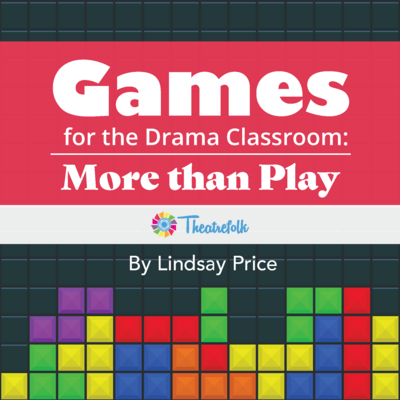There exists in everyone the potential for good or evil. Laramie Dean's adaptation of Dracula asks the question: How much would it take to bring out the darkness inside of you?
“Act It Out” Game: Virtual Classroom Edition
At the beginning of a new term of drama classes, you need to inform students about classroom rules and expectations to start on a positive note. However, when teaching drama via distance learning, it’s hard enough to keep students engaged through a computer screen, let alone while having them sit around and read yet another list of classroom rules.
The “Act It Out” game was introduced on the Theatrefolk blog as an active means of introducing classroom rules or theatrical guidelines. Rather than passively listening, students can absorb the classroom rules by presenting them in an active, theatrical manner. This game can be adapted for use in the virtual classroom as well.
1. Brainstorm & discuss.
Many virtual classroom rules are similar to the rules you’d have in a physical classroom, like:
- Arrive to class on time.
- Treat classmates and teachers the way you wish to be treated.
- If you miss class, it is your responsibility to get caught up.
- Participate in all group activities to the best of your ability.
However, you must make some rule adaptations when working virtually, like:
- Mute your microphone when you aren’t speaking.
- Aim your video monitor at your face.
- Video monitors must remain on unless you need to leave (and if you need to turn off your monitor, let the teacher know why).
- Have students use a class signal to indicate that they would like to respond or ask a question.
- Do your best to reduce background noise and outside distractions during class time.
Have your students brainstorm a list of rules that they think are important for the virtual classroom, and identify which rules would also be appropriate for a physical classroom. Discuss how they think rules should be adjusted for the virtual classroom, why they are important, and what the consequence might be for ignoring or breaking a rule.
Encourage students to phrase rules in positive terms: “Arrive on time” rather than “Don’t be late to class.” If students suggest negative rules, discuss how they can be rephrased as positive.
2. Get into groups.
Divide students into small groups (3-4 students per group) and secretly give each group a classroom rule to act out. You’ll need to assign students to breakout rooms and drop in to each room to give them the rule.
Alternatively, you may wish to have students attempt this game right away as an improv exercise, in which case, you don’t need to keep the rule a secret.
3. Rehearse.
Groups can either act out the rule as stated OR act out the opposite of the rule and show the class what not to do.
Alternatively, groups can do a two-scene performance: first, the group will act out breaking the rule and what happens (consequences); second, the group will act out following the rule and what happens (success!).
Give the groups a time limit to plan and rehearse their scene, then have each group perform for the rest of the class. Students can make their scenes serious or comedic, as long as they appropriately demonstrate their assigned rule.
4. Perform & analyze.
Once the group has performed, have the rest of the class guess which rule they acted out. Usually, it is just as helpful to talk about the guesses as the actual rule.
This game can lead to interesting discussions about the rules of the classroom, as well as students’ thoughts and expectations. It’s a good way to gauge what students know and expect of themselves and their peers, and where your expectations and theirs agree or differ.
Including students in the process of creating classroom rules helps them take ownership of their behaviour. It also allows you to observe how students work together in groups, and how adept they are with working with video conferencing technology in a classroom setting.
Related Articles
Create Your Own Choice Board: Drama Activities
by Lindsay Price
Choice boards give students the opportunity to choose how they want to learn a particular subject. Create Your Own Choice Boards: Drama Activities can help encourage your students' independence by allowing them to take an active role in their learning.
Distance Learning
by Christian Kiley
A play about trying to survive and thrive in a virtual classroom.
Games for the Drama Classroom: More Than Play
by Lindsay Price
A collection of games and activities that go well beyond the notion of "play."
Improv Games with Purpose
by Jennine Profeta
Improv games including feedback suggestions and questions, game variations, teaching tips, side coaching tips, entry prompts, exit slip questions, and more!







